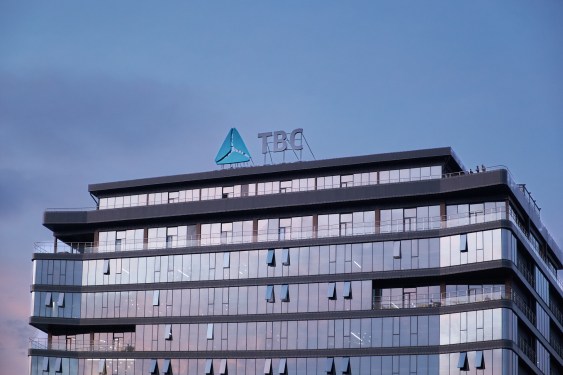Looking at Latin America’s socioeconomic conditions these days, you can find plenty of reasons to be pessimistic or at least daunted by how much is left to improve. Sure, problems are also opportunities, but what if there are just too many hurdles to overcome in the near future?
And yet, despite the worsening global and local macroeconomic climate, unicorns keep being minted in the region. For instance, Ecuadorian payments infrastructure company Kushki doubled its valuation to $1.5 billion in June.
Kushki’s unicorn-level valuation was reached through a $100 million extension to its Series B round, with preexisting investors doubling down on the company. Clocktower Technology Ventures (CTV) was one of its investors in the round, and it remains bullish not only about Kushki, but also about fintech in Latin America overall.
An affiliate of Santa Monica, California-based macro investment firm Clocktower Group, fintech-focused venture arm CTV launched its first fund dedicated to Latin America in 2021. Its stated target? Investing $25 million in 40 Latin American fintechs at the seed and Series A stages.
While CTV’s Latin American strategy is multiyear, we thought the one-year mark was a good time to reach out to partner Ben Savage and discuss the fund’s latest thoughts on the region. We learned that its thesis remains unchanged, but also that there are new factors to take into account, such as growing needs for SMB-focused solutions and financial inclusion.
Editor’s note: This interview has been edited for length and clarity.
What aroused CTV’s interest in raising a strategy dedicated to investing in financial innovation in LatAm?
We launched our Latin America strategy in the spring of 2021 in part because we believe fintech will be at the vanguard of technological innovation in Latin America, creating an opportunity for new companies to displace or disrupt the existing system.
For decades in that region, the systematic oligopoly of established financial institutions hasn’t been able to provide the access and quality of service that we’ve seen technology-driven companies provide in other markets like the U.S.
This lack of innovation should open the doors to up-and-coming fintech disruptors to create products and services for the masses that have been historically left behind.
Why have you been investing from Santa Monica rather than opening local offices?
Our team originally built its presence in the region virtually. My colleague Adriana Saman was born and raised in Ecuador and moved to the United States for college at the University of Pennsylvania, Wharton. When she joined our team in late 2018, Adriana opportunistically met with LatAm founders and cultivated a great set of relationships. These conversations organically snowballed into a high volume of quality deal flow from contacts all over Latin America.
Just before the pandemic started, we made a decision to commit to some investing in the region, making our first LatAm investment in February 2020 into Kushki’s Series A. We were successful once the pandemic started at managing that investment as well as several other early bets, and it was clear we could create the community we wanted to in the region from Santa Monica.
That said, we still strongly feel frequent visits to the region are a necessary complement to that high-touch digital presence, and across our team, we are on the road to Latin America many times over the course of each year.
How does your current level of bullishness on LatAm fintech compare to when CTV launched this dedicated strategy?
We are even more bullish now. The opportunity for financial services innovation in Latin America seems to get more proven with every passing day, and we have more conviction than ever that fintech can be the tip of the spear to help drive fundamental economic change and growth in the region. Latin America today reminds us in a lot of ways of China 15 years ago — a place that at the time was poised for exceptional growth and the formation of remarkable companies.
How is CTV going to balance portfolio support (including follow-ons and extensions) versus new investments in the next few months?
The current moment presents an opportunity to be value-additive to our founders to help think through fundraising and strategy during this pivotal moment, and we are absolutely focused on supporting our companies as robustly as possible right now.
At the same time, we are very actively investing across all of our core regions.
The seed market is especially interesting for us at present as compelling entrepreneurs are coming out of the pandemic and into a more normalized economy with new ideas and new energy to build.
We are also seeing lots of great Series A and B companies explore creative financing options to fortify their balance sheets ahead of a larger fundraise in 2023 and we are very engaged in those sorts of conversations.
Could the current downturn and high inflation slow down the pace of financial inclusion in the region?
No — we believe it is more likely to accelerate the pace of financial inclusion in the region. Consumers are more likely to switch out of legacy banks and financial providers when phase shifts occur than when things are going well. Think of the COVID-19-induced recession: It led to a massive adoption of new digital tools for wealth management and brokerage services. Yes, some of that had to do with the fact that people were stuck at home, but it was also a reflection of the rejection of incumbent financial players.
From a business model perspective, do you think that rising rates might affect LatAm fintechs’ timeline to profit? Would you suggest they adapt, and how?
Rising rates tend to cause [emerging market] volatility and downturns. So, yes, there could be a few lean years in Latin America if the U.S. Federal Reserve were to engineer a global recession. However, most central banks in emerging markets, for example, Turkey, are already ahead of the curve. That is what is strange about this cycle; it is the Fed, European Central Bank, Bank of Japan and Bank of England that are behind the curve, not Latin American central banks. [Editor’s note: Ben Savage answered this interview before the ECB’s latest announcements.]
A lot depends too much on inflation. If you just get nominal rate increases but real rates still stay fairly low given inflation, it should be somewhat benign for fintech companies, especially spread business models where nominal repayment rates would stay strong. If there are rising real rates that drive a broader economic slowdown, of course, fintech companies will feel that.
Overall, though, we think of fintech startups as infrastructure for GDP growth in Latin America, and their prospects look very strong under a range of forward interest rate scenarios. Most of the sophisticated founders we talk to are already diversifying their funding sources to handle liquidity and rate concerns.
5 investors explain why Latin America is poised to weather the crypto winter
On a global level, what are some innovations related to financial inclusion that you are particularly enthusiastic about? What would you like to see more of in LatAm? More software-driven applications and less of the 1.0 low-hanging fruit direct-to-consumer financial services (e.g., neobanks and neolenders)?
While we remain interested in the consumer side, we’ve observed that the transition to B2B company-building has been faster in LatAm than in the U.S.
Consumer finance was the initial low-hanging fruit with already many winners established; we think there will be more white space to attack from a B2B perspective.
Specifically in Latin America, micro- and SMBs constitute the backbone of the economy — comprising 99% of the businesses in the region but only contributing to 25% of GDP creation. This is largely attributable to two challenges: low productivity levels and minimal access to credit for this population. We don’t think this will be solved by neo-SMB banks alone, but with the digitization of core processes that can also embed financial offerings.
We are already observing a totally new category of hybrid B2B “software + fintech” companies paving the way for embedded finance to become the most efficient way to effectively bank SMBs and microbusinesses. We are excited about companies providing this subset of Latin Americans with a dual offering of software or marketplaces with financial services to help micro- and SMBs compete.
What is your favorite unconventional quality in an entrepreneur?
I think any founder has to see the world a little bit askew.
Most people just take things as given and don’t really question the world around them. A founder is always a bit of a tinkerer, asking why things have to be the way they are, and then poking at reality to see what happens if they try to make a change. There’s something delightful in this mindset if you are willing to run with it because you start wondering about so many things and are constantly looking for opportunities to improve and reinvent.
My favorite founders are the ones who want to iterate and evolve everything around them and just can’t help but look for how things can be better. It’s a profoundly optimistic view, actually, because you can acknowledge that no matter what there’s always a path toward something more interesting, more rewarding, more fun, more stimulating.
In a place like Latin America, where it’s so obvious how much room there is for growth, it’s a really exciting way to operate; to just fundamentally be full of faith that you as a founder can make a dent in the world. I love working with founders who have big dreams.
How do you prefer to be approached — a cold email or a warm pitch?
We have invested based on initial connections to founders in really any way possible. If there’s a single highest-signal pathway, though, it’s through other founders. We have a big ecosystem of CTV founders around the world and the best way into our door is always through a relationship with an existing CTV founder. Or even another fintech founder we know and admire. Great entrepreneurs know who other great entrepreneurs are — that’s partially why there is so much angel investing by founders, especially in Latin America. But we welcome all outreach, including through our website.







